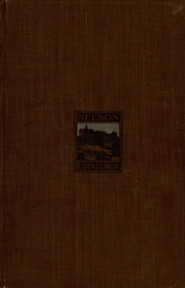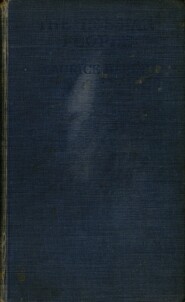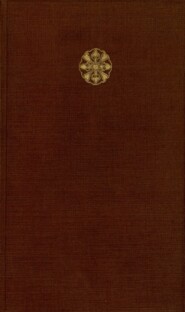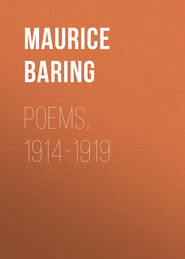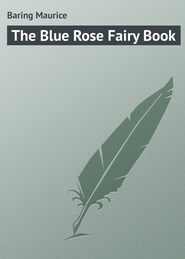По всем вопросам обращайтесь на: info@litportal.ru
(©) 2003-2024.
✖
Passing By
Настройки чтения
Размер шрифта
Высота строк
Поля
Dined with A. and Cunninghame. We went to a music hall after dinner.
Thursday, November 2nd.
Cunninghame and I went to Aunt Ruth's after dinner. When Cunninghame said he had been at Copenhagen, Aunt Ruth said that she knew, of course, Caryl was a brilliant diplomatist, but that Edmund Anstruther ought to have had the post. Uncle Arthur said: "What, Edmund? Copenhagen? He would have got us into war with the Danes."
Friday, November 3rd.
Dined alone with A. He asked after Mrs Housman's health.
Saturday, November 4th. Rosedale.
A.. Cunninghame, myself, and Mrs Vaughan are here. The Housmans were unable to come at the last moment.
Monday, November 6th.
Housman asked me to go to Oakley on Saturday, November 25th. Mrs Housman has gone to Folkestone for a fortnight to stay with Miss Housman. Cunninghame says that Housman and his sister have quarrelled, and that she no longer goes to the house.
Saturday, November 25th. Oakley.
Lady Jarvis, A. and Carrington-Smith are staying here. Cunninghame comes down to-morrow for the day. Housman was obliged to go to Paris on urgent business for a few days.
Sunday, November 26th.
Cunninghame and Carrington-Smith played golf. I went for a walk with Lady Jarvis.
Monday, November 27th.
Dined with A. and went to the play, a farce. A. enjoyed it immensely. I have written to Aunt Ruth to tell her I shall not be able to go there this year. I shall remain in London, as Riley wishes to spend Christmas with me.
Tuesday, November 28th.
Dined with Lady Jarvis. Mrs Housman has gone back to Folkestone. She stays there till Christmas, then she returns to London.
A. is going abroad for Christmas.
Wednesday, December 20th.
A. goes to Paris to-morrow night. Cunninghame is going to spend Christmas with the Housmans at Oakley.
Letter from Guy Cunninghame to Mrs Caryl
HALKIN STREET,
Friday, December 22nd.
DEAREST ELSIE,
As you see, I write from London. All my plans have been upset by an unexpected catastrophe. I will try and begin at the beginning and tell you everything in order as clearly as possible, but the fact is I am so bewildered by everything that has happened that I find it difficult to think clearly and to write at all.
I think I told you in my last letter that Housman asked me to spend Christmas with them at Oakley. I was to go down yesterday, Thursday, and George was going to Paris by the night train. I think I told you, too, that ever since we stayed at Oakley in November, George has been a changed man and in the highest spirits. On Thursday we had luncheon together. I thought it rather odd that he should be going to Paris, but he said he was tired of England and felt that he must have a change. I wondered what this meant. I could have imagined his wanting to go away if he had been like he was before, that is to say miserable, but now that he seemed to be enjoying life it was rather extraordinary. I said I was going to Oakley. He said nothing, and talked about his journey. After luncheon he went to the office to give Mellor some final instructions. He said he might be away for some time. I left him there at about half-past three. I asked him why he was going by the night train, and he said he hated a day in the train and always slept well in the train at night. I said good-bye and went down to Oakley in a taxi. Housman had not arrived, and the butler (who has taken the place of the nice parlour-maid there used to be at Campden Hill) told me that Mrs Housman had gone up to London. Her maid thought she was staying the night at Garland's Hotel, but he, the butler, knew nothing of her arrangements. This astonished me, but I supposed there were no servants at Campden Hill. At a quarter to five Housman arrived in a motor with Carrington-Smith. He looked more yellow than usual. I met him in the hall and while we were talking the butler gave him a letter which he said Mrs Housman had left for him. He said we would have tea at once in the drawing-room. Then he said to Carrington-Smith: "I just want to show you that thing," and to me: "We will be with you in one minute." He took Carrington-Smith into his study and I went into the drawing-room. Tea was brought in. I again tried the butler and asked him whether Mrs Housman was coming back to-morrow morning. He said that she had left no instructions, but Mr Housman was probably aware of her intentions. He went out and almost directly I heard someone shouting and bells ringing, violently. Carrington-Smith was calling me. I ran out and met him in the hall; he said Housman had had a stroke, he thought it was fatal.
It was like a thing on the stage. A breathless telephone to the doctor. The motor sent to fetch him. Servants scurrying with blanched faces. Housman lying on the sofa in the study, his collar undone, his face ghastly.
Carrington-Smith said: "We must telephone to Campden Hill for Mrs Housman."
I said: "She isn't there." Then told him about Garland's Hotel. He seemed dumbfounded, sent for the butler, who confirmed this, and then got on to the Hotel. Mrs Housman was in. He spoke to her and told her Housman was dangerously ill and she must come at once. He said he would get on to Miss Housman and tell her to bring Mrs Housman down in her motor. This was arranged and he told Miss Housman the whole facts. In the meantime the doctor arrived – an Australian. He examined Housman and said it was heart failure and that he had always feared this. They had known he had a weak heart after his last illness. It might have happened any day.
Then Carrington-Smith told me how it had happened. When they went into the study Housman had sat down at his writing-table and read a letter through twice quite slowly, torn it up and thrown it into the fire. He had then said: "We will go," and at that moment fallen back and collapsed on the sofa.
He told me that Housman had had a terrific row with Mrs Fairburn yesterday and had talked of nothing else on the way down. Probably the letter was from her, he said. I said: "Yes, very likely"; but as a matter of fact I knew it was from Mrs Housman. He had not noticed that, or if he had he was lying on purpose.
Mrs Housman and Miss Housman arrived about six. Mrs Housman almost frighteningly calm.
She wanted to know every detail. She had a talk with Carrington-Smith alone and then I saw her for a moment before going away. She asked me if I had seen Housman before he died. Then she made all the arrangements herself. I went back to London by train.
I don't know what to think. Why did she go to London? Why did she stay at Garland's Hotel? The Campden Hill house isn't shut up. Miss Housman talked about going there. Did the letter which she left for Housman play a part in the tragedy?
I sent George a telegram. Possibly you may see him.
Yours,
G.
From the Diary of Godfrey Mellor
Friday, December 22nd.
I was rung up last night by Cunninghame, who had returned to London unexpectedly. He had bad news to tell me. A tragedy had occurred at Oakley and Housman had died suddenly of a heart attack. Mrs Housman was informed at once and reached Oakley an hour after the tragedy occurred.
Cunninghame has informed A. by telegram.
Not unconnected with this tragic event a small incident has occurred to me which leaves me stunned.
I have unwittingly violated A.'s confidence, and as it were looked through a keyhole into his private affairs. I am literally appalled by what I have done. But after reviewing every detail and living again every moment of yesterday, I do not see how I could have acted otherwise than I did, nor do I see how things could have happened differently.
These are the facts:
A. arrived at the office at half-past three on Thursday afternoon with Cunninghame. Cunninghame left him.
A. remained in his room until five o'clock, writing letters.
At five he sent for me and told me he was leaving for Paris that night by the night train. Tuke, he said, had gone on his holiday. He asked me if I was going away. I said I should be in London during all the Christmas holidays, as I had a friend staying with me. He said he would most probably be away for some time, and he would be obliged if I could look in at the office every now and then. He had told the clerks to forward letters, but he wanted me to make sure they did not forward circulars or any other useless documents to him. I was to open all telegrams, whether private or not, and not to forward them unless they were of real importance. "But," he said, "there won't be any telegrams. Don't forward me invitations to luncheon or dinner."
This morning I went to the office. There was a telegram for A. The clerk gave it to me. I opened it. It had been sent off originally at five yesterday afternoon and redirected from Stratton Street. Its contents were: "Albert dangerously ill. Fear worst. Cannot come. Clare."
I forwarded it to the Hôtel Meurice. He will know of course that I have read it. I read it at one glance before I realised its nature. Then it was too late. And so unwittingly I am guilty of the greatest breach of confidence that I could possibly have committed.
It was a fatality that this telegram should have missed him. The clerks say he left the office soon after I did, a little after five. They say the telegram did not reach the office till later. They didn't know where A. was and he had told them not to forward any telegrams till I had seen them. I remember his saying that he was not returning to his flat. That he was dining at a club and going straight from thereto the station, where his servant would meet him. I am truly appalled by what I have done, but the more I think over it, the less I see how it could have been otherwise.
I had some conversation with Cunninghame on the telephone last night. He had been talking to Lady Jarvis on the telephone. She had at once offered to go to Oakley, but Mrs Housman said she would rather see no one at present.






